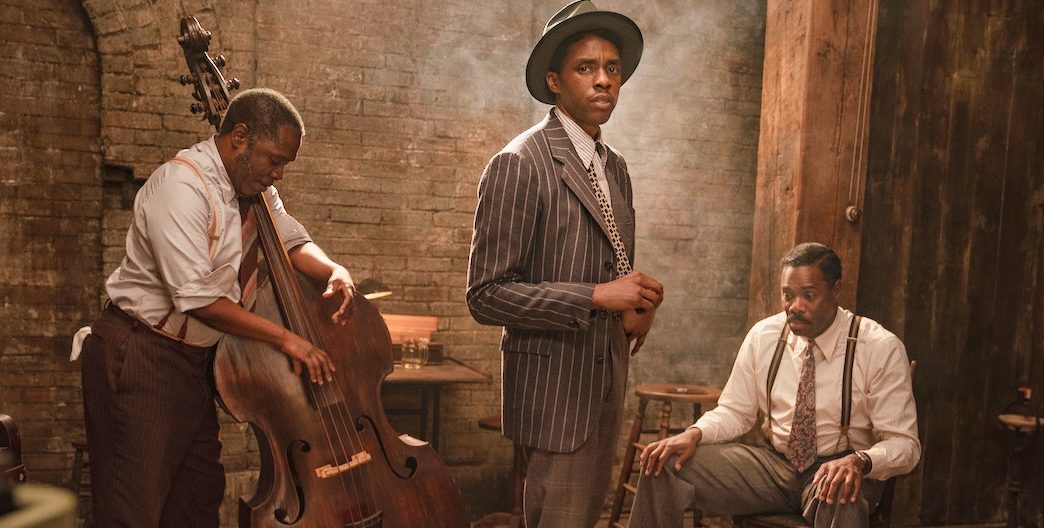The blues is a big part of African American history and culture. Built-up from the Deep South, it became a popular musical genre back in the latter half of the 19th century. While the genre itself was popular and had been going on for a few decades, it wasn’t until the early 1900s that artists began recording their work. One of those pioneers was Gertrude “Ma” Rainey, an African American professional blues singer who earned the title “Mother of The Blues”.
Sharing its title with the song of the same name, “Ma Rainey’s Black Bottom” is an adaptation of a play by August Wilson, and takes place in the yellow-tinted bustle of a 1920s Chicago. On a white-hot sun-drenched afternoon, a blues band awaits the legend herself, Ma Rainey, in a studio for a recording session. As the heat sears the brick walls, tensions arise, resulting in an eruption of emotions from the band as they engage in a series of stories. Traumas, rants, and all forms of ponderings come to light as they explore their darkest experiences and deepest ambitions.

Now, this film and the play in which it was derived from aren’t actually historically accurate. While Ma Rainey may have been real, August Wilson merely provided fictionalised depictions of her and some of the individuals surrounding her. Contrary to what the movie presents, Ma had a very good relationship with her bandmates, so the conflict in the movie is simply a figment of the playwright’s imagination.
Nevertheless, the aim of the production was to convey a tale relevant to that era. There was a struggle, a matter close to the African American heart that could correlate to today’s societal concerns.
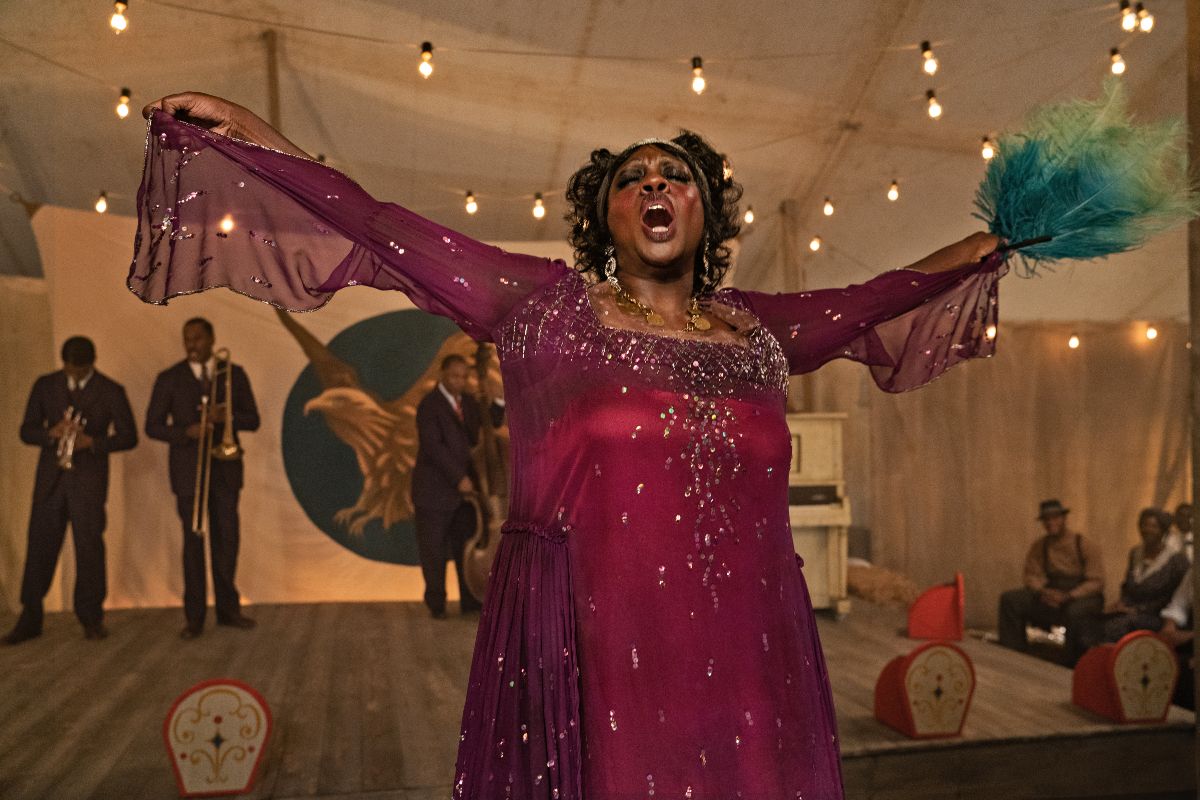

When we are introduced to Ma Rainey (Viola Davis) in the film, she is revered in her home state. Thunderous applause follows wherever her raunch sets went. She was untouchable. However, up north, we see the threads of segregation at play. Indeed, Ma Rainey knew if she did not play hard to get, she would be exploited by the studio that was recording her.
She knew that she could not evoke desperation. She was unapologetically cold and calculative to maintain that leverage. Heck, even when her request to have a Coca Cola during her session was not granted, she refused to budge for her voice until she got her damn drink. She was aware that it was her game and the game was hers alone.
Enter Levee Green (Chadwick Boseman).

Now, Levee is not like Ma Rainey. No doubt, he’s a young and talented chap with a keen ear for what his audience would want. His personal drive and charisma are over the roof, displaying his lack of respect for the session he is in. He believes that if he could write some songs and pass them to the studio, he could have his big shot at fame. The lights. The glimmer. The spotlight would all be on him.
Nevertheless, he does not fully grasp the societal inconsistencies that plague his trade. He’s brash and hot-headed. He doesn’t realise that unlike Ma, he is not quite in a position of power to negotiate. As a matter of fact, it is his own naivety that leads to his own downfall, culminating in a grim realisation that no matter how hard he pushed, the Black man would still be boxed in a White-dominated world.
Ma Rainey and Levee definitely butt heads throughout the course of the movie. A seasoned songstress, Ma recognised his existence in the band as a threat. The ulterior motives as well as his conflicting style of music did not fit with what she felt was best for her voice. Again, she knew that the game was hers, and although she was well-established, she could have lost it all to this younger fellow if she let up.
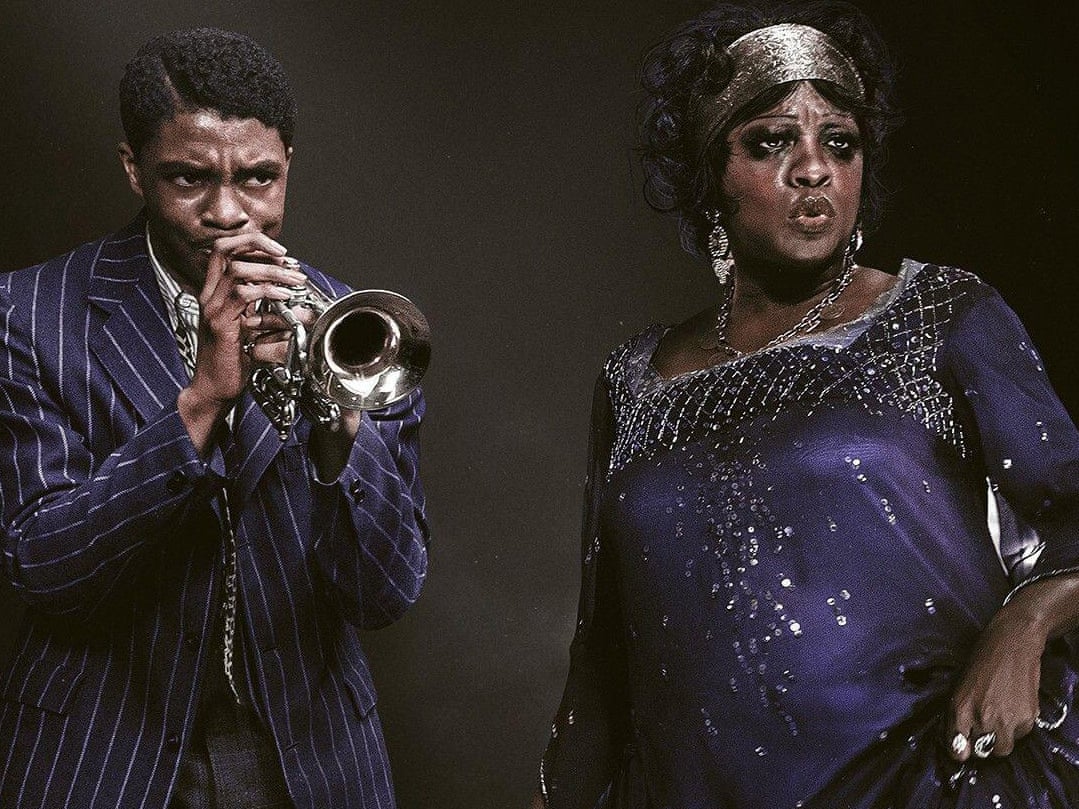
Viola Davis and Chadwick Boseman both embody characters with a command unlike any other. The sheer commitment they brought to the make-up of these personalities is astounding. Davis, brilliant as ever, manifests her inner diva to present Ma with a sass, both to comedic effect and also with a fiery fierceness in varying circumstances. Davis perfectly bottles up an ice-cold personality to show that she means business when she wants what she wants.
As for Boseman (bless his soul), he gives his all to this young boy, trumpeting his way to the top. And man, he’s just astounding. During one particular scene in the first half of the film, Boseman delivers a monologue. Oh, the way his teary eyes twitched as Levee revisits a childhood trauma in a close-up shot, the way that scene played out, we felt every single bit of bitter rage and melancholy sorrow. Boseman just nailed it all.
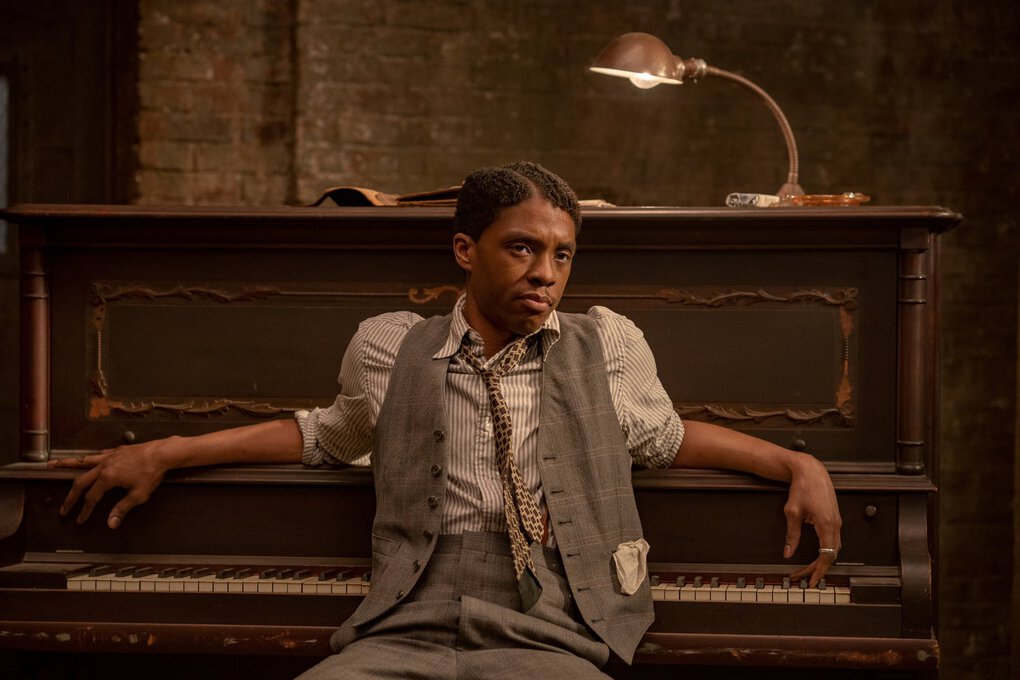
Indeed, most of the film just takes place within the confines of the studio. Only a bunch of shots are set outside to provide extra context to what the characters are narrating, often to good effect. On the surface, “Ma Rainey’s Black Bottom” may just be about an artist and her band trying to record a song. Nonetheless, the focused direction and the magnificent acting not just from Davis and Boseman but also Glynn Turman and Colman Domingo give the film a more profound subtext.
The camera work also does wonders as the film basks in the heat of Chicago. The intensity of the outside temperature bounces into the emotions and narrative of the film. Characters are shown sweaty, frustrated, and in a state of discomfort as the recording session descends little by little into madness.
Chadwick Boseman’s passing in August was an unfortunate loss to the world of cinema. Indeed, “Ma Rainey’s Black Bottom” enshrouds us with a bittersweet tapestry of Boseman’s contributions and prowess. It provides us with the final look of his essence, a man who was willing to stand his ground and tell stories that were empowering.
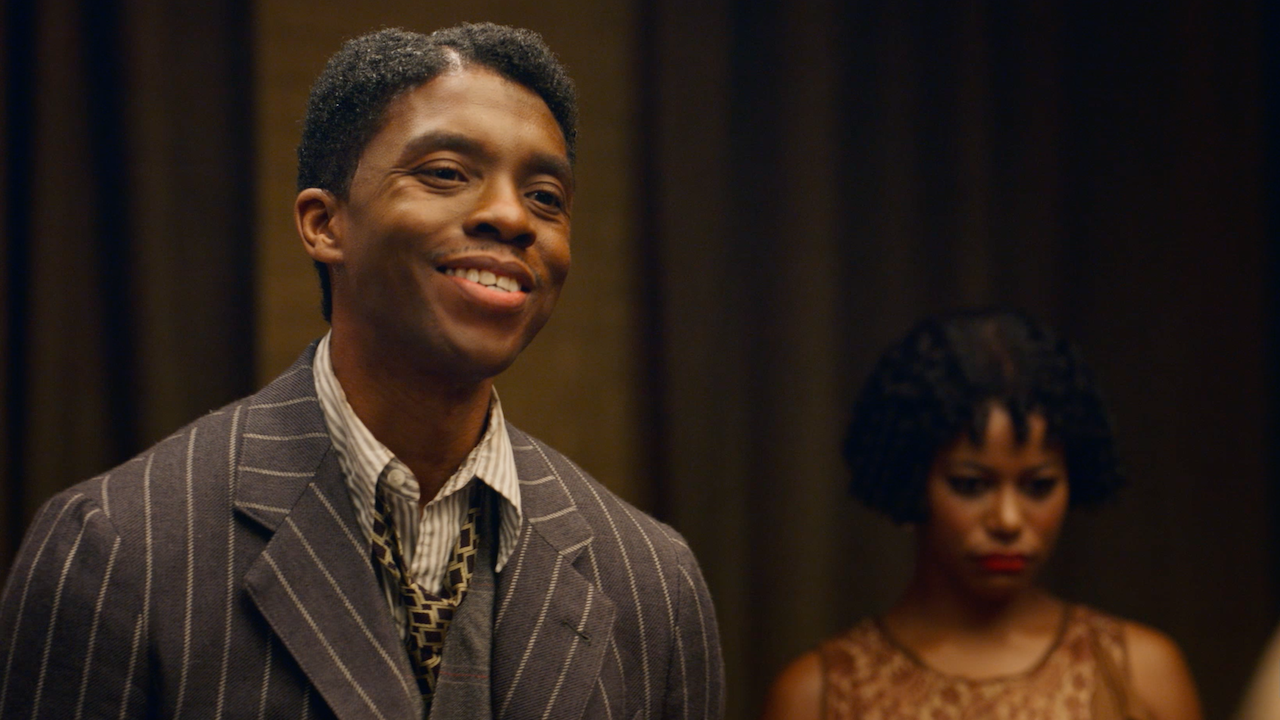
In a way, the real Boseman contradicted his character in the film, himself being more like Ma. He knew that if he let up on his stance, if that tree he planted in the soil was uprooted, he would have lost. The game was his and it was his game alone.
Boseman was an inspiration to many and continues to do so as he gave his all in his final performance, showing us the sheer determination he had even in the face of death. He was a hero both on the silver screen and off of it. There’s no doubt that we relish the opportunity to bask in his artistic royalty one last time, to have one more lasting memory of a truly astounding performer.
Rest in power, king.


“Ma Rainey’s Black Bottom” and its companion piece, “A Legacy Brought to Screen”, are currently streaming on Netflix.
Follow us on Instagram, Facebook or Telegram for more updates and breaking news.


